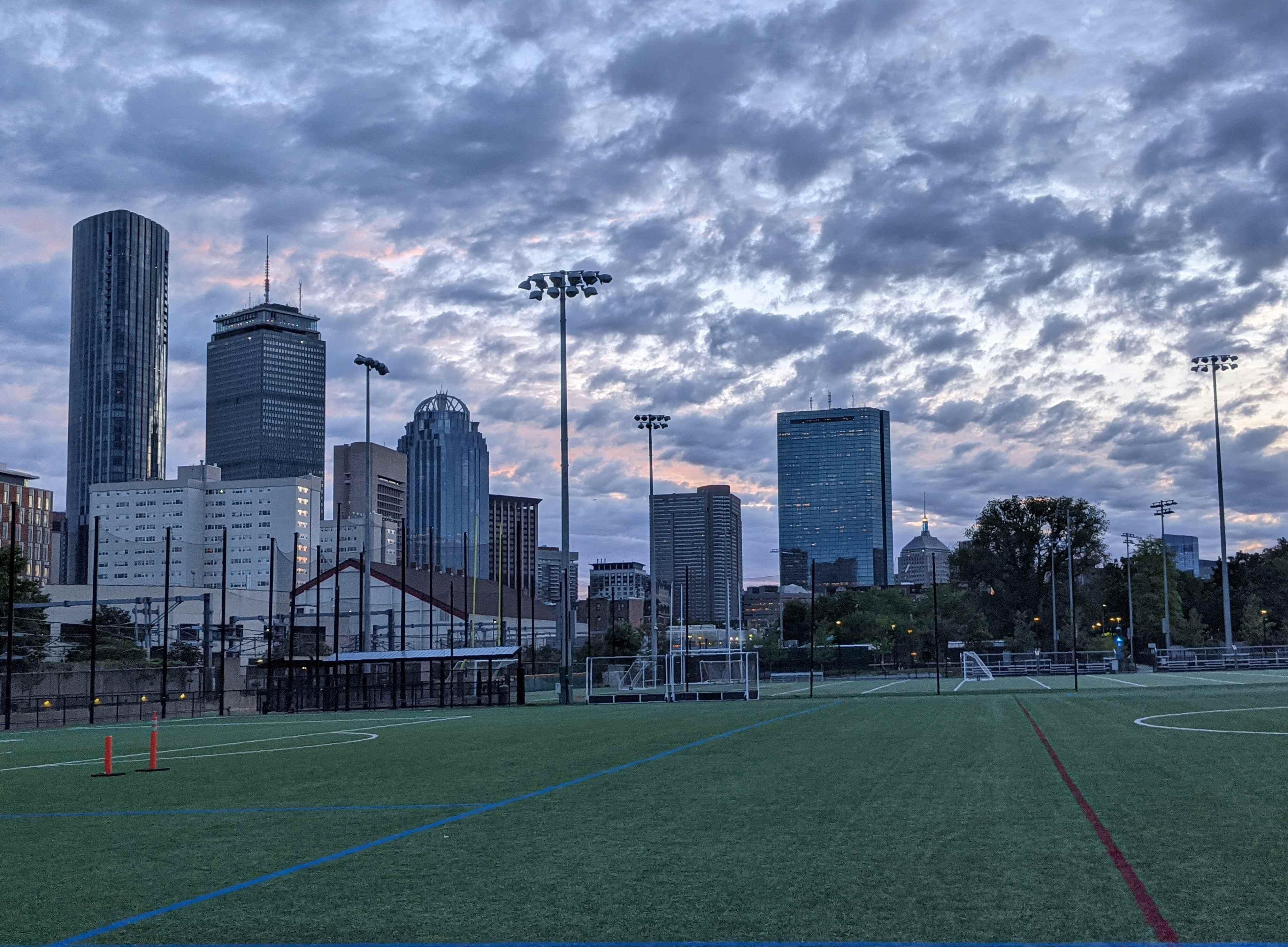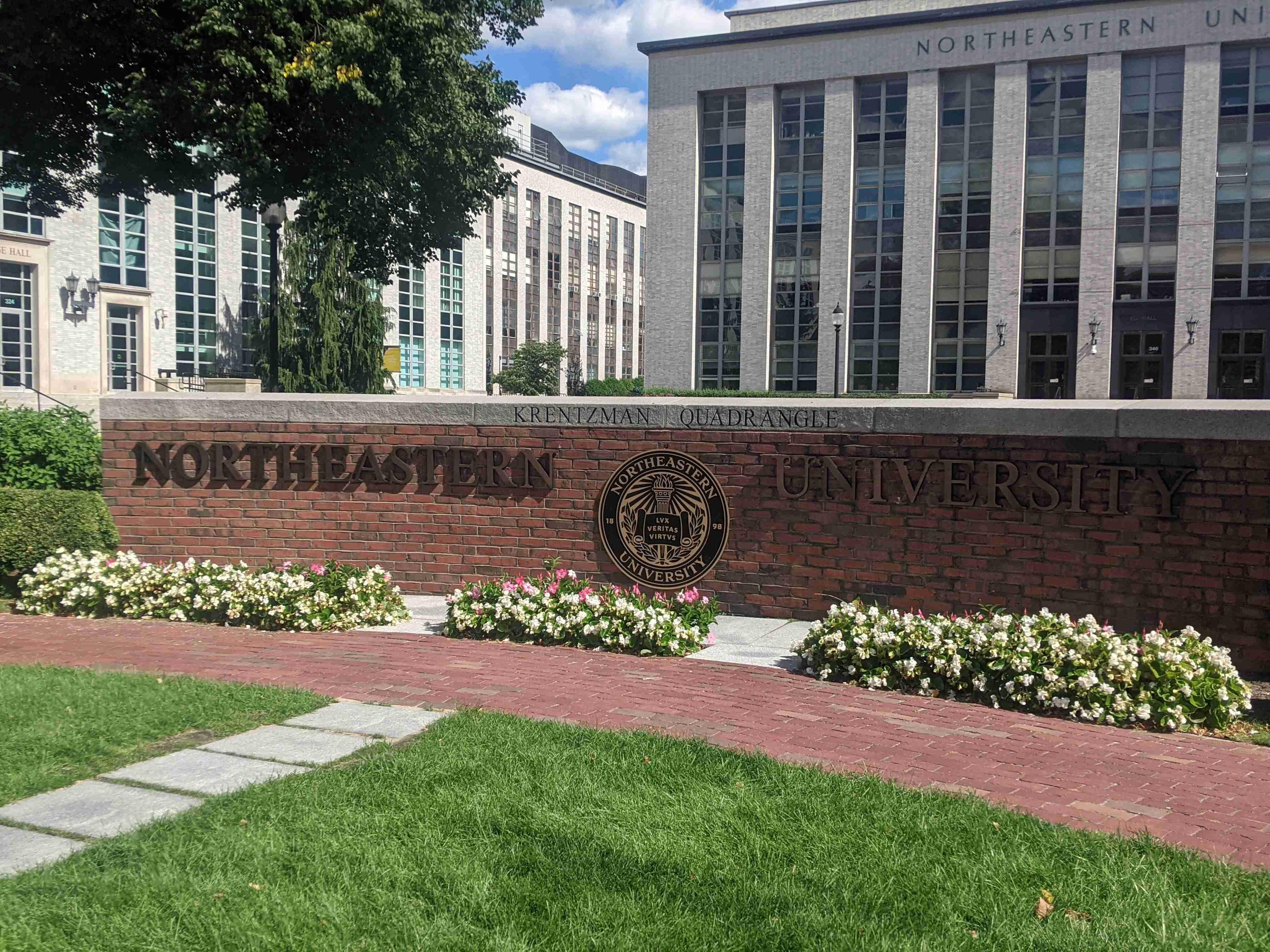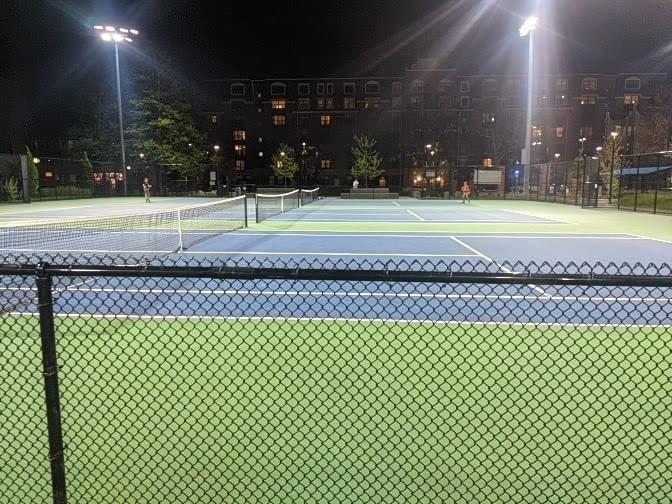What Students Say
Likes
- 1)Northeastern University being a research-oriented university provides great opportunity to pursue research
- 2)Lively campus,
- 3)Could fulfill my intellectual curiosity in the field of Life Sciences
Dislikes
- 1) Difficult to network
- 2) College situated in the heart of Boston makes it expensive for students,
- 3) Academia could get a little toxic, less funding in most of the labs,
Course Curriculum
- Pretty doable if you set aside time. I took up a challenging course like bioinformatics to test my aptitude. I would say I would rate it 7/10. It was both theoretical and practical. We had coding sessions for courses like BINF6308 and BINF6309 (Computational Methods-I and Computational Methods-II) that can be considered practical and we had theory classes like Biotech Enterprise that cover the fundamentals of biotech and entrepreneurship that could be considered theoretical.
- Positive aspects of the course include industry-level training, world-class faculty members and highly adept teaching resources to learn from. Negative aspects of the course include (this could be specific to my case): not being able to find a full-time opportunity in biotech/bioinformatics, even after graduation due to COVID-19 hitting and also a lack of H1-B visa sponsors. Job attainment after graduation was a turmoil, to say the least.
- For each semester, I was enrolled in 2-3 courses that accredited to at least 8 points.
Admission Experience
-
I applied for the following university:
- 1. Northeastern University: Admitted
- 2. UIC (University of Illinois, Chicago): Admitted
- 3.UIUC (University of Illinois, Urbana Champagne): Shortlisted
- 4. University of Santa Cruz, California—rejected.
- I believe I got rejected at USC because of my low GRE score. I had a score of 308/340 with a distribution of verbal (148) and quants (170). Moreover, I had applied to the Computer Science program, which is highly demanding in the United States and highly competitive. For that, you need to have a minimum score of 320/340 in your GRE.
- I chose Northeastern University as it is situated in the biotech hub, i.e., Boston. Factors that influenced my decision were high employability opportunities by making yourself available in the biotech hub of the world, great research around the Boston Area, great scope for networking opportunities and lastly, wanting to go away from home.
- I got admitted to Northeastern University's Bioinformatics program in 2019. The steps that followed were the following:
- I wrote the GRE and chose 3 universities from the list: Northeastern University, University of Illinois, Chicago, University of Illinois, and Urbana Champagne.
- I got the score around February 2019 and got a rejection from the University of Santa Cruz but an acceptance from Northeastern University for the Bioinformatics course and enrolled in it. I got it in terms of a postcard sent to my email that I had given while writing my GRE exam.
- I accepted their offer letter for an M.Sc. course in bioinformatics and wrote to the academic advisor of CoS (College of Science) that I am interested in pursuing this course for September 2019 (Fall intake).
- The eligibility criteria include GRE and IELTS. GRE score must be from 300 to 320 to get into good, reputed universities. For IELTS, you need to have a score within the bandwidth of 6.5–8. I had a 7.5. Hence, I got admitted.
- The admission experience overall was great; I cannot complain. Very straight-forward and I was able to enroll for the Fall 2019 course immediately after I got accepted.
- Some of the challenges were: 1) To choose a new course like bioinformatics for my master's, as I did my bachelor's in a completely different field, electronics and instrumentation engineering.
- 2) Another challenge was to get my F1-OPT. I had to wait for a month for it to get approved and once it got approved, I could book my tickets to fly to the United States.
- Some of the key highlights:
- I got to reach out to professors well before hand and tried to connect with them to ask about my underlying issue with choosing bioinformatics and exploring the unknown.
- The ease of getting to the university soon after the acceptance of the offer letter from Northeastern University for the master's program.
- I applied to the Fall 2019 intake. Factors like Boston being the biotech hub of the world, ease of getting employed in the United States, world-class research and access to great healthcare and gym facilities, along with great faculty members in the field of sciences.
- The admissions process takes around 1-2 months. Application: March 2019, Acceptance: August 2019.
Class Schedule
- At least 2-3 classes were scheduled for the alternating days throughout the week.Timings are usually in the late mornings, like 10 AM–12 PM and post 5 PM.
- In our Bioinformatics (BINF6308 and BINF6309) course, we had around 30 students. On online classes, I could see around 15-20 students enrolling for the classes.
- Around 70% of the class were mostly of Indian origin, so I would say around 20 people.
Faculty
- I would say 1:10. This ratio is a healthy distribution of faculty members: students because the quality of education is great and the interaction that I had with my faculty was fruitful.
- The teaching methodology of my faculty members was more along the lines of practical training, where they emphasized more on coding and getting your hands dirty to master bioinformatics concepts. Apparently I am still struggling to get a job in this field and have been finding it difficult to get a job.
- Its totally an individual affair and one needs to be persistent in their pursuit of a job. You can definitely reach out to the professors and personal networks but to get the job, it lies totally upon you.
- While I was enrolled in the university, I absolutely admired the agility and dedication of some of the faculty members. One person that stood out was Professor Chesley Leslin, who was very adept and was a subject-matter expert in bioinformatics. His didactic skills were off the chart and I was completely enamored by his clarity of thought and vision when it came to solving problems in bioinformatics.
Campus Life
- Around 13 campuses scattered through different cities. There is Toronto, London, Singapore, Boston, Oakland, Vancouver, Portland, Miami, Seattle, Toronto, etc.
- All of these facilities are available. Sports include gym, swimming pool, basketball, football and ice hockey. Medical services include the UHCS's health insurance that covers health surcharges and medical billings.
- We are called Huskies and we have techfests, campus fares and clubs like Taekwondo Club, Karate club and the Judo Club.
- Sports include football events air hockey events and cultural events include Halloween fests and Trick'n' Treats, along with student organization board committees that are in charge of most of these events.
Part Time Jobs
- Very rare. Out of the 40 students that enroll, around 5 people secure TA, RA or DA positions.
- About 20-45$/hour.
- ITS (IT Department): 35$/hour; Swimming Pool Proctor: 20-25$/hour; International Student School Advisor: 15$/hour; RSA: 20$/hour.
- We could work for at most 40 hours/week.
- It is pretty difficult considering the competition amongst the folks that apply for the job.
- Most Indians prefer working. for the RSA jobs as most of their shift is during the night and they could focus on their classes during the day and complete their assignments by the night.
- A student typically earns around $20/hour. It is pretty easy to secure part-time employment opportunities.The usual process is to go to NUCareers and apply for part-time job roles.They could click on options such as part-time or full-time jobs, attach their resumes to the portal and then face the interview when called upon.
Placement
- Around 75% of the graduating batch secures employment within 6 months.
- Average salary is around USD 45,000-USD 60,000.
- Usually networking through career fairs, online portals such as LinkedIn, Indeed.com, Monster.com, and internships on campus by directly reaching out to the professors.
- Its subjective.Some people had to go through a lot of struggle, whereas for some people, it was smooth sailing to get internships. Mostly in top biotech firms like Moderna, Pfizer, Vertex Pharmaceuticals, Amgen, AbbVie , Thermo Fisher Scientific.
- Some of them were Pfizer, GRAIL Biomedicine, AbbVie, Vertec, Moderna, etc.
Accommodation
- I found my accommodation on AirBnB.com and Craigslist.
- I paid around 800$ for a single-bedroom, 4-room apartment. It included an attached bathroom.
- I found it challenging to get a fully furnished apartment and an apartment with reduced prices.
- I would certainly recommend checking Airbnb and probably reaching out to realtors one-on-one for apartments or even if you can shed an extra few dollars, please get yourself an on-campus accommodation. Do not solely rely on lessor advertising their property on Craigslist. Be extra cautious.
- It is not that far. It is like 3 miles away from the college campus.Indian students mostly stay in the vicinity of the campus for ease of commute.
Exams
- GRE, IELTS, TOEFL—all of these can be written for admission. GRE (300 - 320); IELTS (6.5 - 7.5) TOEFL (95-120)
- Statement of Purpose, Letter of Recommendation, Curriculum Vitae and Cover Letter.
- No, there was no prior interview before getting the offer letter, i.e., the application process. And even if there was, it was not for students who took their courses within the College of Science.
Fees
- Tuition: 24.82 Lakhs , hostel (I lived outside , so I paid around 850 dollars)
- Semester-wise. It is 32 credits.It cost around 6.21 lakhs per semester.
- Monthly expenses came to around 800-1000 USD. Rent: 600 USD/month; Transport: Used Northeastern's RedEye services.
- Regular expenses, i.e., groceries and other utilities, 80–160 USD/month.
Scholarship
- Not that I am aware of. If you had a GRE score of above 320 and you had applied to this course, then probably you will be able to get this scholarship. The Biotech A2M Scholars Program is applicable for students who have graduated with a Master's for Bioinformatics/Biotechnology.
- From Northeastern University, if you are enrolled in the College of Science, I believe around 8–10 for a particular course. The award amount would be around $2,000 fee exempt.





.jpg)
